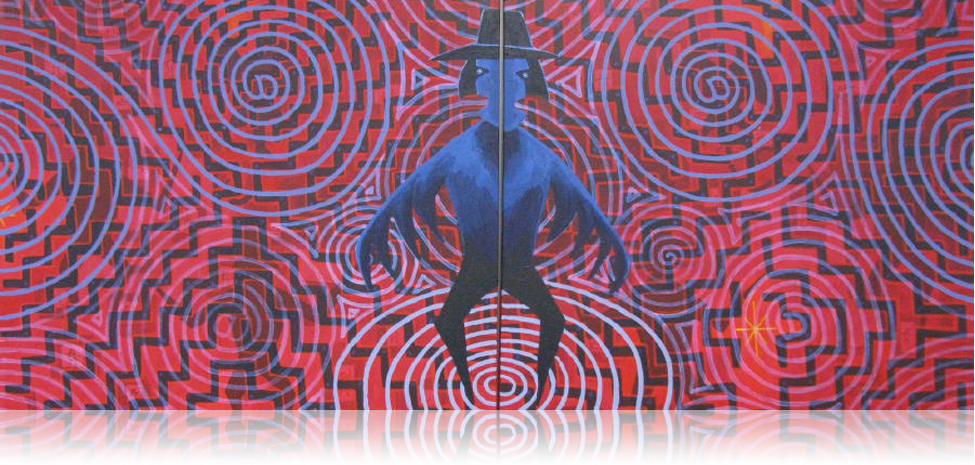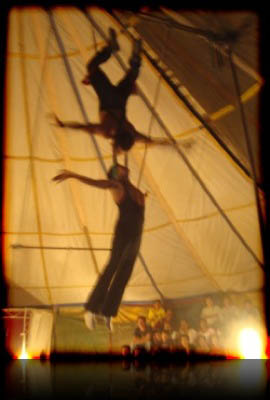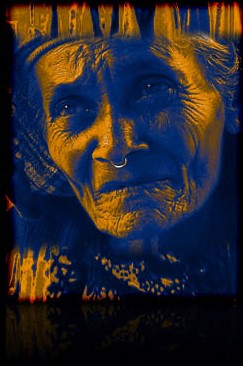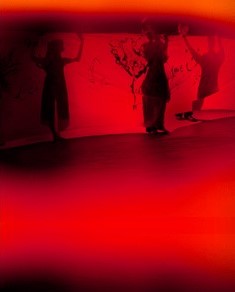The Social Life of Social Death: On Afro-Pessimism and Black Optimism
DOI:
https://doi.org/10.25071/1913-5874/37359Abstract
In what is his finest role, but also his most distressing, the legendary Sidney Poitier plays one Virgil Tibbs, a Philadelphia police detective in transit from an out-of-state visit to his mother’s residence, in Norman Jewison’s Academy Award-winning 1967 film, In the Heat of the Night. The indomitable Mr. Tibbs has been commandeered by the police chief of Sparta, Mississippi, to solve the murder of Philip Colbert, a Chicago industrialist whose business plan for the development of the local economy has now been jeopardized by his untimely death. Chief Gillespie has justice on his mind, to be sure, but also the rate of unemployment of his rural working-class white constituency. Closing the case to the satisfaction of the industrialist’s widow ensures the job creation essential to the maintenance of law and order on this side of the tracks. Identifying a black perpetrator (I was about to write “suspect” but use of that term would require a presumption of innocence not afforded here) ensures that individualized disorder stays on that side of the tracks. It’s a two-for-one deal that keeps everything on track and, more importantly, keeps in place the tracks themselves: the built environment of segregation and the mythos of Jim Crow.
References
Attridge, Derek, Geoff Bennington & Robert Young (eds.) (1987) Post- Structuralism and the Question of History. New York: Cambridge UP.
Baker, Ross K. (1983) “Review of Slavery and Social Death: A Comparative Study.” Worldview Magazine 26(4): 20-1.
Blackburn, Robin (1997) The Making of New World Slavery: From the Baroque to the Modern, 1492-1800. New York: Verso.
Brooks, Daphne (2006) Bodies in Dissent: Spectacular Performances of Race and Freedom, 1850-1910. Durham: Duke UP.
Brown, Jayna (2008) Babylon Girls: Black Women Performers and the Shaping of the Modern. Durham: Duke UP.
Chandler, Nahum (1996) “The Economy of Desedimentation: W. E. B. Du Bois and the Discourses of the Negro.” Callaloo 19(1): 78-93.
Chandler, Nahum (2000) “Originary Displacement.” boundary 2 27(3): 249-286.
Chandler, Nahum (2008) “Of Exorbitance: The Problem of the Negro as a Problem for Thought.” Criticism 50(3): 345-410.
Dienstag, Joshua Foa (2006) Pessimism: Philosophy, Ethic, Spirit. Princeton: Princeton UP.
Egginton, William (2007) The Philosopher’s Desire: Psychoanalysis, Interpretation, and Truth. Palo Alto: Stanford UP.
Esposito, Roberto (2008) Bíos: Biopolitics and Philosophy. Trans. Timothy Campbell. Minneapolis: University of Minnesota Press.
Forrester, John (1991) The Seductions of Psychoanalysis: Freud, Lacan and Derrida. New York: Cambridge UP.
Franklin, V. P. (1983) “Reviewed Work(s): Slavery and Social Death by Orlando Patterson.” Journal of Negro History 68(2): 212-16.
Gordon, Lewis (2000) Existentia Africana: Understanding Africana Existential Thought. New York: Routledge.
Hartman, Saidiya (1997) Scenes of Subjection: Terror, Slavery and Self- Making in Nineteenth-Century America. New York: Oxford UP.
---. (2007) Lose Your Mother: A Journey Along the Atlantic Slave Route. New York: Macmillan.
Hartman, Saidiya & Frank B. Wilderson, III (2003) “The Position of the Unthought.” Qui Parle 13(2): 183-201.
Hurst, Andrea (2008) Derrida Vis-à-vis Lacan: Interweaving Deconstruction and Psychoanalysis. New York: Fordham UP.
Johnson, E. Patrick (2003) Appropriating Blackness: Performance and the Politics of Authenticity. Durham: Duke UP.
Jones, Donna V. (2010) The Racial Discourses of Life Philosophy: Vitalism, Négritude, and Modernity. New York: Columbia UP.
Judy, Ronald (1996) “Fanon’s Body of Black Experience.” Lewis R. Gordon, T. Denean Sharpley-Whiting & Renée T. White (eds.) Fanon: A Critical Reader. New York: Wiley-Blackwell: 53-73.
Keeling, Kara (2007) The Witch’s Flight: The Cinematic, the Black Femme, and the Image of Common Sense. Durham: Duke UP.
Lemke, Thomas (2011) Biopolitics: An Advanced Introduction. New York: NYU Press.
Lewis, Michael (2008) Derrida and Lacan: Another Writing. Edinburgh UK: Edinburgh UP.
Manders, Dean Wolfe (2006) The Hegemony of Common Sense: Wisdom and Mystification in Everyday Life. New York: Peter Lang.
Marriott, David (2000) On Black Men. New York: Columbia UP.
Marriott, David (2011) “Whither Fanon?” Textual Practices 25(1): 33-69.
Mbembe, Achille (2001) On the Postcolony. Berkeley: University of California Press.
Mbembe, Achille (2003) “Necropolitics.” Trans. Libby Meintjes. Public Culture 15(1): 11- 40.
Mirisch, Walter (Producer) & Norman Jewison (Director) (1967) In the Heat of the Night [Motion Picture] United States: United Artists.
Moten, Fred (1994) “Music Against the Law of Reading the Future and Rodney King.” Journal of the Midwest Modern Language Association 27(1): 51-64
Moten, Fred (2003) In the Break: The Aesthetics of the Black Radical Tradition. Minneapolis: University of Minnesota Press.
Moten, Fred (2004) “Knowledge of Freedom.” CR: The New Centennial Review 4(2): 269-310.
Moten, Fred (2007) “Black Optimism/Black Operation.” Unpublished paper on file with the author.
Moten, Fred (2008a) “The Case of Blackness.” Criticism 50(2): 177-218.
Moten, Fred (2008b) “Black Op.” PMLA 123(5): 1743-7.
Muller, John & William Richardson (eds.) (1988) The Purloined Poe: Lacan, Derrida and Psychoanalytic Reading. Baltimore: Johns Hopkins UP.
Munoz, Jose (1999) Disidentifications: Queers of Color and the Performance of Politics. Minneapolis: University of Minnesota Press.
Nyong’o, Tavia (2002) “Racist Kitsch and Black Performance.” Yale Journal of Criticism 15(2): 371-91.
Robinson, Cedric (2000) Black Marxism: The Making of the Black Radical Tradition. Durham: University of North Carolina Press.
Sexton, Jared (2009) “The Ruse of Engagement: Black Masculinity and the Cinema of Policing.” American Quarterly 61(1): 39-63.
Sexton, Jared (2010a) “People-of-Color-Blindess: Notes on the Afterlife of Slavery.” Social Text 28 (2): 31-56.
Sexton, Jared (2010b) “African American Studies.” John Carlos Rowe (ed.) A Concise Companion to American Studies. Malden, MA: Wiley-Blackwell: 210- 28.
Sexton, Jared & Huey Copeland (2003) “Raw Life: An Introduction.” Qui Parle 13(2): 53-62.
Sharpe, Christina (2010) Monstrous Intimacies: Making Post-Slavery Subjects. Durham: Duke UP.
Sheperdson, Charles (2008) Lacan and the Limits of Language. New York: Fordham UP.
Wagner, Bryan (2009) Disturbing the Peace: Black Culture and the Police Power after Slavery. Cambridge, MA: Harvard UP.
Weheliye, Alexander (2005) Phonographies: Grooves in Sonic Afro- Modernity. Durham: Duke UP.
Wilderson, Frank B., III (2008) Red, White and Black: Cinema and the Structure of U.S. Antagonisms. Durham: Duke UP.
Wilderson, Frank B., III (2009) “Grammar and Ghosts: The Performative Limits of African Freedom.” Theater Survey 50(1): 119-125.
Wolfe, George C. (1985) The Colored Museum: A Play. New York: Grove Press.





